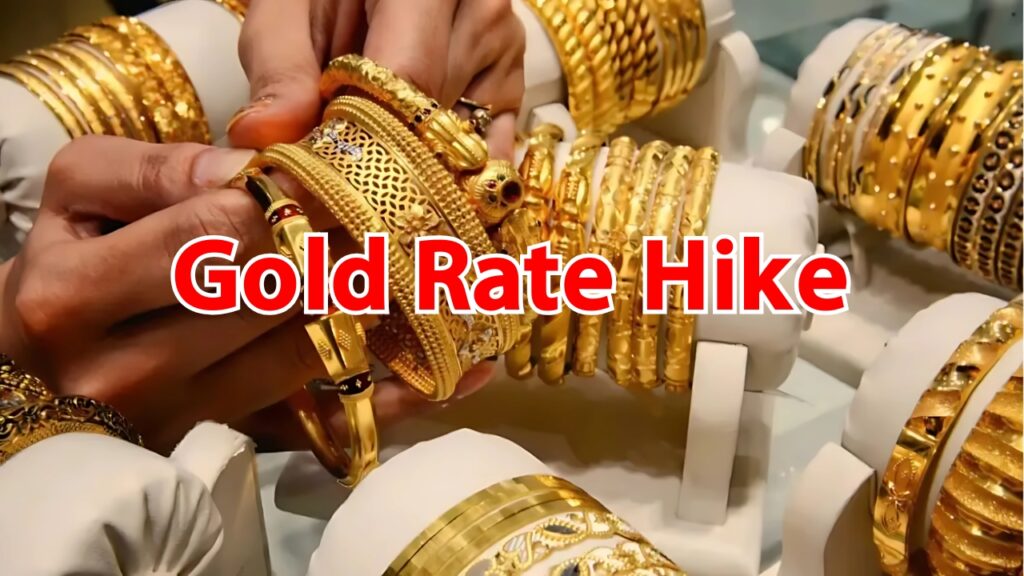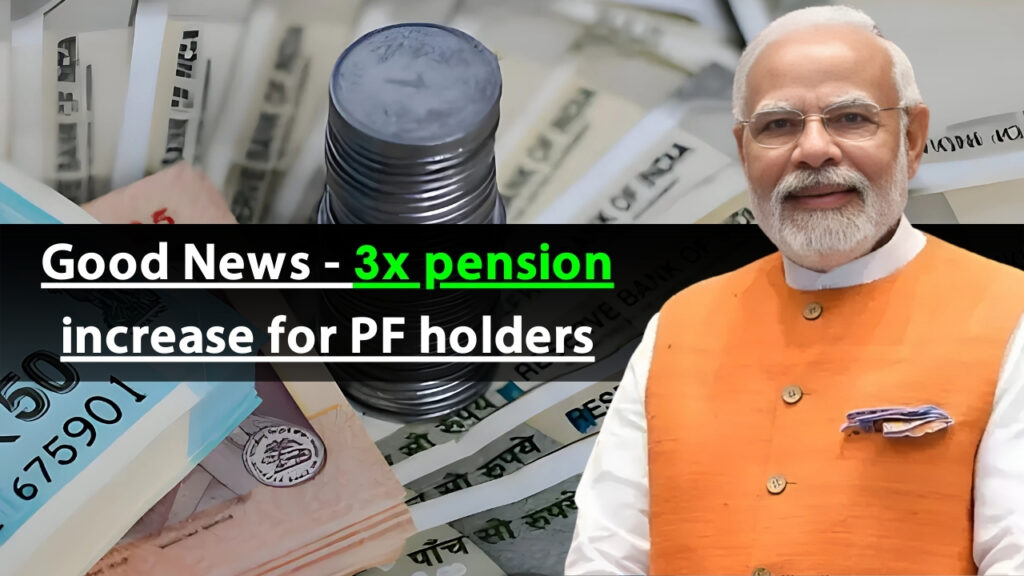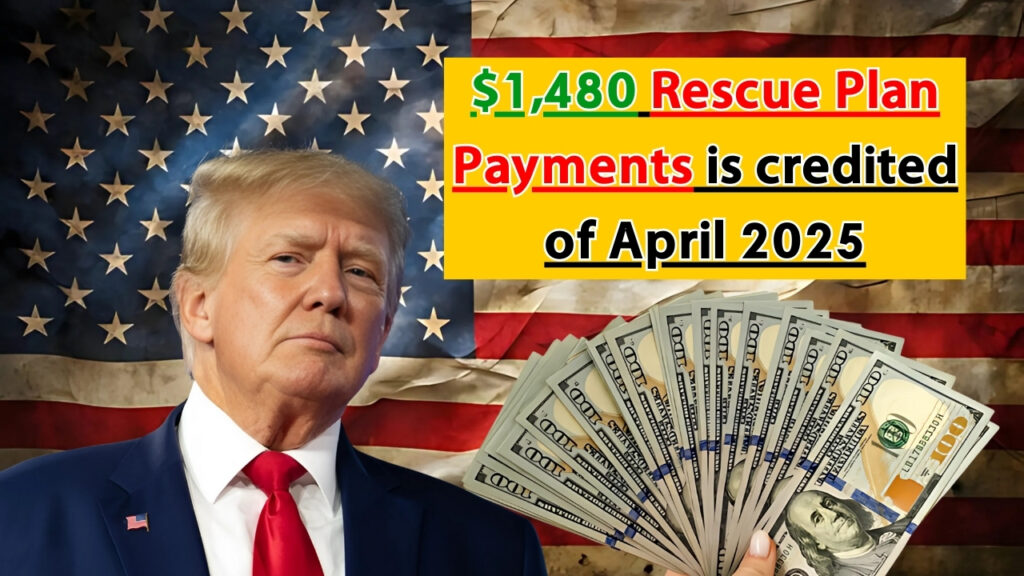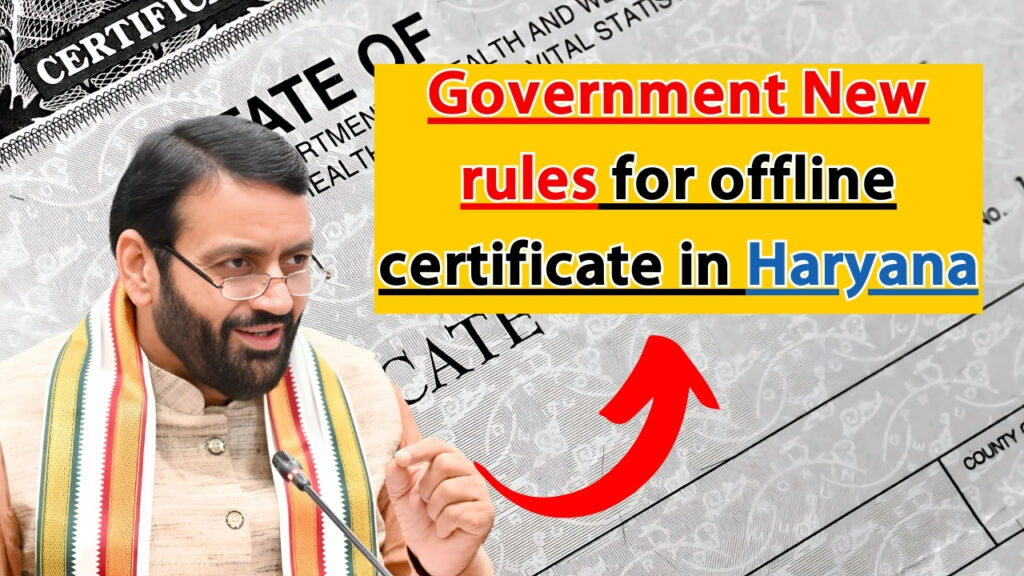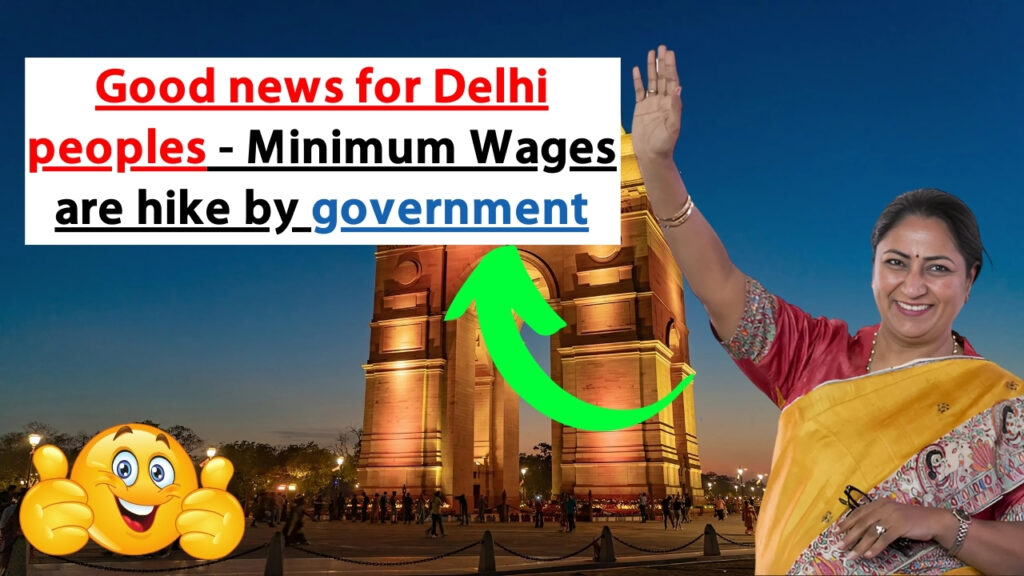Health Card : In a major relief to elderly folks in Delhi, Delhi government has declared that a scheme for dedicated health card for them will be rolled out from April 28.
It is one of the most extensive programs for senior citizens by any of the public health care systems in the last few years targeted at simplifying healthcare delivery to citizens over 60 years of age.
The news is a welcome relief to the estimated 1.2 million senior citizens living in the city of Delhi, a growing number of whom are frustrated by how difficult it is to navigate the increasingly hectic healthcare system.
With the new health cards, senior citizens will benefit from easier access to medical services, minimal waiting time for test results and other paperwork, and priority care in select hospitals and healthcare centers across the National Capital Region.
Table of Contents
What the Health Card Offers
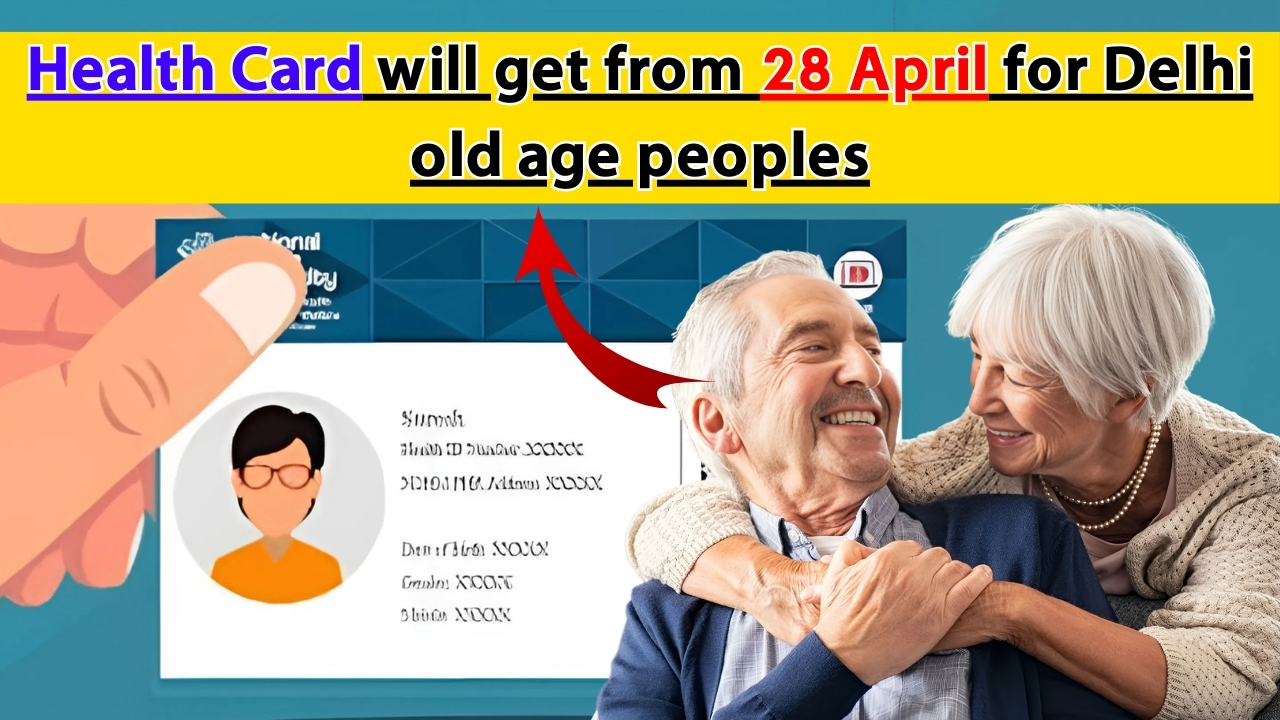
Through the senior citizen health card program, multiple benefits are brought together under one ID system namely:
Priority treatment in government hospitals: With a dedicated counter, cardholders will have faster access to consult only at all government hospitals of Delhi, saving them the long queues, which can be particularly daunting for patients who are elderly.
affordable medicines: Under the scheme, there is 20% to 40% discounts on 105 essential drugs across different therapeutic areas of various dosages at discounted rate from the retail price and 15 – 50% of maximum retail price on life saving drugs meant for critical and chronic diseases through therapeutic substitution in formulary (if available).
Medical records: Each card is tied to a central database that holds the cardholder’s history, as well as current prescriptions, and past treatments, providing more system coherence among various healthcare providers.
Emergency contact system: Cards contain a QR code that emergency personnel use to access information, such as blood type, medical needs, and an immediate contact person.
Free Preventive Check-ups for quarterly basis: Holders will qualify for check-ups twice a year including blood pressure, blood sugar, complete eye check-up and a heart check up test in select hospitals.
Sitting outside his Lajpat Nagar home, Ramesh Khanna, 73, a retired government employee, is cautiously optimistic about the announcement: “Implemented properly, this could solve a lot of problems for us people”.
I’ll be at a hospital and maybe my file won’t be there, or I’ll forget which medications I was prescribed the last time. “It would be very useful to have all in one card.
Alberta Residency, Eligibility and Documentation You Must Be: 1.
-
Criteria The is required to be met by applicants to obtain the health card..
-
Aged 60 and older as of application date
-
Delhi Resident with Valid Residence Proof
-
Aadhaar card in possession which is linked with mobile number
-
A new passport size photograph
-
You will need to provide the following documents:
-
Aadhaar card (both original and copy)
-
Delhi residence proof (voter ID, utility bill, or rental agreement)
-
Two recent passport size photographs
-
If available: Previous medical records.
Previous health insurance coverage information (if any)
We have made every effort to keep paperwork to the minimum even as the verification process is very strict,” says Sunita Sharma, Joint Director, Health Services Department, in charge of the programme.
“Ninety percent of seniors already have the documentation they need, and help is available in application centers for seniors who have difficulty with the process.”
Health Card How and Where to Apply
Applications open on April 28, and there are several ways to apply, to suit various preferences and mobility limitations:
Physical Application Centers:
-
All Delhi government hospitals will run special OPD services from 9 AM to 1 PM
-
Applications will be received from 10 am to 4 pm in 25 primary health centres in all districts.
Mobile Applicati ONON units shall visit all of the major senior citizen communities once a week on assigned dates as published.
Online Application:
Applications will open on the health portal of Delhi government, with the option to upload the documents, will begin from Saturday, it added.
-
Verification calls to residents will occur within 72 hours of online submission
-
Approved cards may be picked up on location or delivered at home on demand for a small fee.
Assisted Home Application:
-
Elderly people with walking difficulties can request home visits by application helpers.
-
This facility can be availed by booking through the dedicated helpline (1800-111-XXX) with at least one week prior notice
Dr Vikram Mehta, geriatric care specialist at a leading hospital in Delhi recommends physical application mode for the majority of seniors: “The online system is convenient, but in case of an application centre, any doubt can be clarified at the same time and the process of documentation is uniform across all centers.
The assisted home application should be reserved for the real exceptions who are not capable because of health restrictions to come to centres.
Health Card Timeline and Levels of Implementation
The four phases of rollout of the health card program are intended to create a smooth transition:
-
Phase 1 (April 28-May 15): Seniors, 75+ or with disabilities apply
-
Phase 2 (May 16 – June 30): Open to all residents aged 65 and older
-
Phase 3: July 1st to August 15th remaining eligible seniors 60-64.
-
Phase 4 (beginning August 16): Ongoing enrollment for recently undisclosed seniors and recent residents of Delhi
“This phased rollout will enable us to focus first on the most vulnerable seniors, while being sensitive to application volume and remain nimble,” says Rajiv Kumar, Secretary of the Social Welfare Department.
“We expect to be issuing 200,000 cards a piece in the first three stages.
Physical health cards will be delivered in 10-15 days after the applications are approved, but approved people may get benefits before receiving the card by using their application number and Aadhaar details.
Health Card Integrate into Your Current Programming
The new health card does not replace benefits seniors now receive but rather supplements and simplifies them. It interfaces with a number of programs:
Ayushman Bharat: Senior citizens eligible under Ayushman Bharat can link the Ayushman Bharat benefit to the new health card and the single access point will be built for both schemes.
Delhi Government Pension Scheme: Pensioners may opt to get directly absorbed with having verifiable link over both sides.
CGHS for retired govt employees: Not integrated, but new card to keep CGHS details for the purpose of coordination.
Manju Verma, who runs a senior citizens grass-roots advocacy group in east Delhi, likes this approach: “Many seniors are already confused with so many schemes, different cards and different procedures.
It’s a constant requirement throughout the year and a primary card tied to all of these programs, like the FSA card, does seem to make sense when it comes to everyday health care.”
Like all government initiatives of this magnitude, the health card programme is confronted with a number of implementation hurdles:
Digital literacy challenges: Many older Americans grapple with technology, which could be a hurdle to making use of the card’s digital aspects.
Hospital readiness: It’s unknown if all hospital facilities have the infrastructure to scan and honor the cards.
Privacy and security: Those worries involve the privacy and security of data in centralized medical database and lack of adequate access control of data.
The Delhi government has made the following announcements in response to these issues:
-
Healthcare staff-training programmes in all participating institutions
-
digital literacy training program for older adults at a community center
-
Rigorous privacy protections in the centralized medical database
-
Ongoing audits of participating healthcare providers
“There will be challenges in implementation,” concedes Dr. Sanjay Gupta, an expert on public health policy at a think tank in Delhi.
“The question is how quickly the system will respond to feedback and whether there is real political will to fix bugs as they come up or simply let bureaucracy get in the way of potential,” he said.
Health Card What’s Next: Expansion Plans
Basic healthcare access was initially prioritized through the deployment, but there were plans to scale the program in the second and third phases:
Tie-up with private hospitals : Talks are on with various private players to provide their services at concessional rates to cardholders.
Telemedicine: There will be a specialized telemedicine platform for the benefit of the cardholder which is expected to start in October 2025.
Enhanced preventive screening: Broader health screenings, including cancer screening, will be expanded to add by 2026.
Medical continuing equipment: Talking of seeming subsidies for unsanitary equipment such as blood pressure monitors, glucometers, and so on.
For Delhi’s senior citizens, the health card project can be a breakthrough in healthcare access, if the implementation lives up to the grand vision announced.
(Muscle, bone or joint pains) “At my age, to stand in line for hours or keep narrating my history to various doctors is very tiring,” says resident Dwarka’s Kamala Devi, 68.
“If such a card can indeed streamline it all and make treatments cheaper, it would be bringing down a difference to our class of life.
While April 28th remains a few weeks away, those who are eligible to apply are encouraged to start collecting necessary materials and determining where they can submit their applications to avoid long lines during the opening days of the program.
The government is expected to release precise locations for the centers and schedules for the mobile units on its official health portal and in newspaper ads in the next few weeks.




